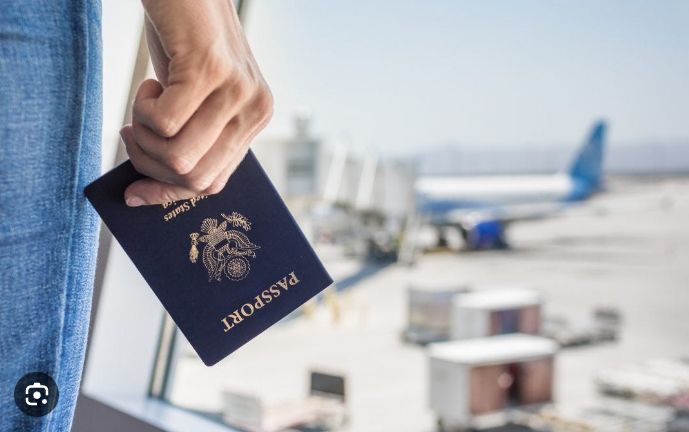When planning to travel abroad, you might have come across the term “apostille,” but what exactly is it? An apostille is a form of authentication issued to documents for use in countries that participate in the Hague Convention of 1961. Basically, it’s a special seal applied by an authority to certify that a document is a true copy of an original. The apostille ensures that public documents issued in one signatory country will be recognized as valid in another. The paperwork often requiring such certification includes birth certificates, marriage licenses, court orders, and educational documents.
For international travelers, having documents authenticated with an apostille stamp is key. It is particularly important for those who are planning to work, live, or study abroad, as well as for individuals involved in international business or securing personal affairs in a foreign country. The apostille process, such as with an apostille Canada, adds a layer of legal legitimacy, ensuring that your important documents are accepted across borders with minimized hassle. This kind of certification becomes a bridge easing the process of verifying foreign documents. In the article, we will examine the apostille process and why it is an important part of your travel preparation checklist.
Table of Contents
The Apostille’s Historical Significance
The apostille emerged from the need to streamline verifying legal documents internationally, culminating in The Hague Convention of 1961. Before the apostille’s existence, individuals and institutions were burdened by an complex and frequently perplexing system when seeking recognition for documents across different nations’ borders. Each country enforced its own set of legal requirements, complicating the authentication process.
The Hague Convention consequently introduced the apostille—a uniform certification method meant to be recognized by all participating countries. The apostille ensures that documents originating from one member nation can be certified for legal use in all other member states, eliminating the need for additional legalization steps and promoting a more efficient global transfer of official paperwork.
The Apostille Authentication Procedure
The apostille authentication procedure is designed as a streamlined method for document legalization among countries that are signatories to The Hague Apostille Convention. A diverse set of documents can undergo the apostille process, including records like marriage, death, and adoption certificates, educational certificates like diplomas and transcripts, and legal documents such as patents, notarized affidavits, and incorporation papers.
The specific authorities designated to issue an apostille differ among nations but generally include government bodies like departments of state or foreign affairs, or other official entities tasked with document verification. Securing an apostille can facilitate the acknowledgment of documents internationally, rendering it a key procedure for conducting personal and business activities across borders.
Recognizing an Apostilled Document
When coming across an apostilled document, certain physical features can assist in determining its authenticity. An apostille is typically a type of certification, often joined to the document as a separate sheet, impressed with a unique official stamp or seal. This stamp contains the name of the issuing authority, the country of provenance, and a reference number, facilitating the tracing of the apostille’s origin. The document itself may bear signatures from the public officials or bodies that have been acknowledged by the authority that issued the apostille.
To confirm the authenticity of an apostille, one might reach out to the pertinent government office or agency responsible for its issuance. They should be able to validate the legitimacy by checking the reference number and the date it was issued. Comparing the signatures or the seal against official records can further determine whether the document and its associated apostille are valid. This validation procedure ensures that the document is acceptable in another country that is a member of the Hague Apostille Convention.
Apostilled Documents versus Standard Authentication
When it comes to confirming the authenticity of key documents for international use, documents with apostille endorsement offer major benefits compared to those with standard authentication. The primary advantage of an apostille is its broad recognition among the convention’s participating countries, which smooths out the legalization process and reduces time spent. This means documents such as birth certificates, corporate filings, or judicial papers can be accepted without the need for additional diplomatic or consular legalization.
Despite its effectiveness, the utility of an apostille is limited; it’s not applicable if the destination country is not part of the convention, leading to a necessity for standard authentication through a series of individual verifications. Certain situations, like employment, marriage, or business activities in a country that is a member of the convention, might strongly suggest the use of an apostille for its speed and legal acceptance. As a result, when engaging with countries not party to the convention, following the more lengthy traditional method of standard authentication isn’t a choice but a mandate.
The Future of Apostilles and Electronic Authentication
As technology continues to revolutionize the way we handle information, current trends point towards an inevitable shift from traditional paper authentication to digital authentication. Processes that once required physical stamps and signatures, such as apostilles, are increasingly moving towards electronic systems that promise greater efficiency and security. Electronic apostille programs, e-APP for instance, have emerged, streamlining the authentication of public documents used across borders.
As governmental and international bodies adapt to this digitalization, traditional apostille services may become a thing of the past, making way for a fully integrated electronic authentication process that ensures documents are recognized internationally without the delay and hassle of the physical authentication process. This shift not only reflects the global trend of digital transformation but is also a response to a world that demands instantaneous and secure transactions across the broad digital expanse.
An apostilled document is more than just a piece of paper; it’s a key facilitator of trust in international relations—particularly for travelers and those engaging in legal affairs abroad. Serving as a universally recognized form of authentication, an apostille ensures that the documents you carry are viewed as legitimate and that they hold the same value abroad as they do in your home country. This simplified validation process omits the complexity of bureaucratic validation, allowing individuals to traverse borders with confidence in their personal paperwork.





